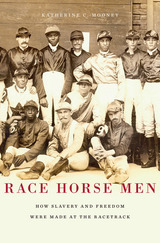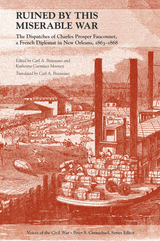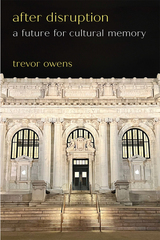
Race Horse Men recaptures the vivid sights, sensations, and illusions of nineteenth-century thoroughbred racing, America’s first mass spectator sport. Inviting readers into the pageantry of the racetrack, Katherine C. Mooney conveys the sport’s inherent drama while also revealing the significant intersections between horse racing and another quintessential institution of the antebellum South: slavery.
A popular pastime across American society, horse racing was most closely identified with an elite class of southern owners who bred horses and bet large sums of money on these spirited animals. The central characters in this story are not privileged whites, however, but the black jockeys, grooms, and horse trainers who sometimes called themselves race horse men and who made the racetrack run. Mooney describes a world of patriarchal privilege and social prestige where blacks as well as whites could achieve status and recognition and where favored slaves endured an unusual form of bondage. For wealthy white men, the racetrack illustrated their cherished visions of a harmonious, modern society based on human slavery.
After emancipation, a number of black horsemen went on to become sports celebrities, their success a potential threat to white supremacy and a source of pride for African Americans. The rise of Jim Crow in the early twentieth century drove many horsemen from their jobs, with devastating consequences for them and their families. Mooney illuminates the role these too often forgotten men played in Americans’ continuing struggle to define the meaning of freedom.

From 1863 through 1868, Fauconnet maintained a copybook of his official correspondence with the French Ministry of State. These confidential dispatches, collected for the first time in this valuable volume, provide not only a panoramic view of the Civil War and Reconstruction on the Gulf Coast but also new and important information on the transnational aspects of America’s Civil War.
Eager to explain complicated issues to a French government concerned over the fate of one of its former territories, Fauconnet painstakingly laid out what was happening in New Orleans by drawing on war news, newspaper columns, and summaries of speeches and promises of Union commanding officers. His commentary peeled away the layers of contradiction and moral dilemmas that confronted citizens of Southern, Northern, and French heritages during the war years and early postwar period. Among the topics he considered were whether emancipated slaves deserved the same rights as naturalized citizens, the state of the cotton market, and the harassment of French-speaking immigrants by both Union and Confederate authorities. Informative and detailed, Fauconnet’s communications became increasingly acerbic and uneasy as he documented and explained the Civil War to officials in his faraway homeland.
Breathtaking in its geographic scope and topical breadth, thanks in part to the acute observational and reporting skills of its author, Fauconnet’s correspondence offers a unique and thoroughly fascinating francophone perspective on New Orleans during some of the most tumultuous years in U.S. history.
CARL BRASSEAUX is the author of over thirty books related to the French presence in the Gulf Coast, including Refuge for All Ages: Immigration in Louisiana History; French Cajun, Creole, Houma: A Primer on Francophone Louisiana; and Stir the Pot: The History of Cajun Cuisine. Until his recent retirement, he was director of the Center for Louisiana Studies and professor of history at the University of Louisiana at Lafayette.
KATHERINE CARMINES MOONEY, a Ph.D. candidate at Yale University, is a specialist in nineteenth-century history. Her research includes the history of thoroughbred horse-racing culture from 1820 to 1910.
READERS
Browse our collection.
PUBLISHERS
See BiblioVault's publisher services.
STUDENT SERVICES
Files for college accessibility offices.
UChicago Accessibility Resources
home | accessibility | search | about | contact us
BiblioVault ® 2001 - 2024
The University of Chicago Press









